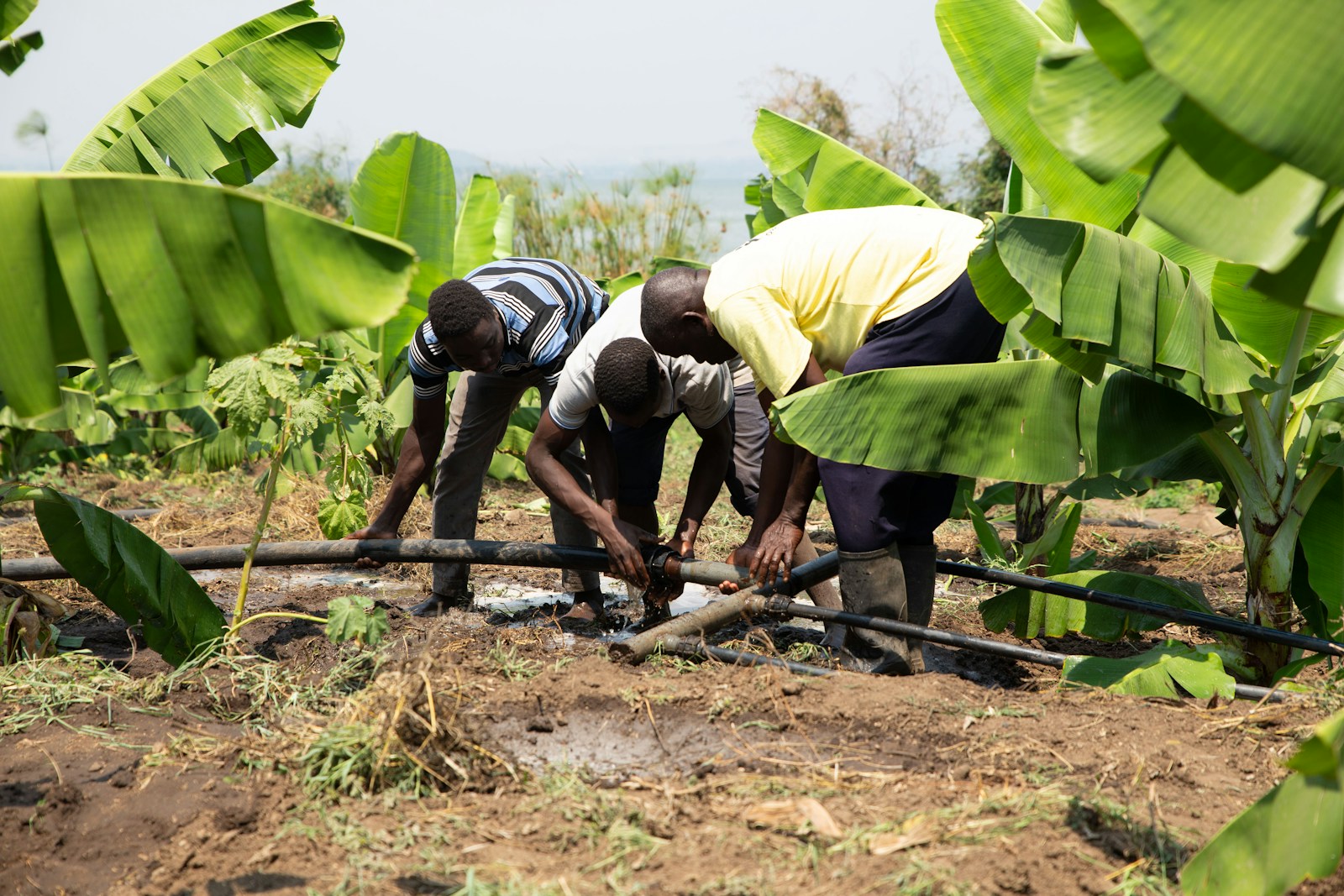Agri-SME Investment: Empowering African Agricultural Entrepreneurs
Agri-SME Investment marks a transformative step for small and medium agricultural enterprises across Africa. The $10 million fund provides essential capital to entrepreneurs who often face barriers to accessing financing, limiting their potential for growth. By targeting SMEs, the initiative aims to stimulate innovation, improve productivity, and strengthen the agricultural value chain.
Funding under Agri-SME Investment supports a wide range of activities, from mechanization and irrigation to processing and distribution. Entrepreneurs can leverage these resources to modernize their operations, adopt new technologies, and enhance efficiency. By reducing operational constraints, the investment fosters competitiveness and enables SMEs to participate effectively in regional and international markets.
Capacity-building is a critical component of Agri-SME Investment. Training programs, mentorship, and technical support accompany financial resources to ensure that recipients can manage growth sustainably. Entrepreneurs gain skills in financial management, marketing, and production optimization, equipping them to scale operations and create long-term economic impact within their communities.
Agri-SME Investment: Driving Innovation in Agriculture
Innovation is central to Agri-SME Investment. The fund encourages the adoption of modern agricultural techniques, precision farming, and digital tools that enhance productivity and reduce waste. By embracing technology, SMEs can increase yields, improve crop quality, and respond to market demands more efficiently. Agri-SME Investment positions African agriculture as a sector ready to compete globally.
Collaboration with research institutions and technology providers ensures that entrepreneurs have access to cutting-edge solutions. Agri-SME Investment promotes the integration of innovative practices into daily operations, from climate-smart agriculture to automated supply chains. These measures not only boost production but also foster resilience against environmental and economic shocks.
By creating a culture of innovation, Agri-SME Investment strengthens the entrepreneurial ecosystem. Startups and established SMEs are incentivized to explore new ideas, implement best practices, and invest in sustainable solutions. This dynamic approach encourages a continuous cycle of improvement and growth within the agricultural sector.
Agri-SME Investment: Socio-Economic Impact and Community Development
Agri-SME Investment generates significant socio-economic benefits. By supporting small and medium enterprises, the fund creates jobs, increases household incomes, and strengthens local economies. Rural communities, in particular, benefit from increased employment opportunities and access to improved agricultural products and services.
The initiative also encourages community participation and knowledge sharing. Entrepreneurs are encouraged to collaborate, share experiences, and mentor emerging farmers. Agri-SME Investment fosters a networked ecosystem where knowledge transfer strengthens collective capacity, improving overall sector performance and community resilience.
Furthermore, Agri-SME Investment contributes to food security and sustainable development. By increasing production efficiency and promoting environmentally responsible practices, the fund ensures that agriculture remains a reliable source of nutrition, income, and economic stability for communities across Africa.
Agri-SME Investment: Expanding Market Access and Trade Opportunities
Agri-SME Investment focuses on opening new market avenues for small and medium agricultural enterprises. By providing funding and strategic support, SMEs can access domestic, regional, and international markets more effectively. This expansion increases revenue potential, encourages scaling, and strengthens Africa’s position in the global agricultural trade network.
Partnerships facilitated through Agri-SME Investment connect entrepreneurs with distributors, exporters, and retailers. These collaborations improve supply chain efficiency, reduce transaction costs, and ensure that products meet quality and regulatory standards required by different markets. By bridging the gap between production and market access, the investment helps SMEs maximize their commercial potential.
Market intelligence and data analytics are integral to this process. Agri-SME Investment provides tools and insights that allow entrepreneurs to make informed decisions, forecast demand, and adapt to changing market trends. This data-driven approach enhances competitiveness and reduces risks, enabling SMEs to thrive in a dynamic economic environment.
Sustainability and Environmental Responsibility
Sustainability is a core principle of Agri-SME Investment. The fund promotes environmentally responsible practices, including soil conservation, water management, and sustainable crop rotation. By integrating these practices, SMEs contribute to long-term agricultural productivity and reduce negative environmental impact.
Agri-SME Investment also encourages renewable energy solutions, efficient waste management, and reduced chemical usage. Entrepreneurs are guided to implement green technologies and sustainable production methods, which improve both environmental outcomes and operational efficiency. This approach ensures that growth does not come at the expense of natural resources.
By prioritizing sustainability, Agri-SME Investment aligns with global development goals and positions African SMEs as leaders in responsible agriculture. Environmentally conscious practices not only protect ecosystems but also enhance brand reputation and marketability, creating a competitive advantage for forward-thinking entrepreneurs.
Strengthening Entrepreneurial Ecosystems
Agri-SME Investment reinforces entrepreneurial ecosystems by fostering collaboration, mentorship, and access to resources. Networks created through this initiative connect SMEs with investors, technical experts, and peer entrepreneurs, creating a supportive environment for growth and innovation.
Entrepreneurship hubs, incubators, and cooperative programs linked to Agri-SME Investment provide platforms for knowledge exchange, problem-solving, and joint ventures. These collaborative structures reduce barriers to entry, accelerate learning, and promote sustainable business practices across the agricultural sector.
Through these interconnected networks, Agri-SME Investment ensures that financial support is complemented by human capital development and strategic guidance, enabling SMEs to scale successfully and contribute meaningfully to local and regional economies.
Enhancing Financial Literacy and Management
Agri-SME Investment places strong emphasis on financial literacy and effective business management. Entrepreneurs receive training on budgeting, accounting, and financial planning, ensuring that they can manage capital efficiently. This knowledge helps SMEs optimize resource allocation, reduce operational risks, and achieve sustainable growth.
Workshops and mentorship sessions provide practical insights into loan management, investment strategies, and cost control. Agri-SME Investment equips business owners with the tools to navigate financial challenges, make informed decisions, and maintain accountability to stakeholders. Sound financial practices are essential for long-term success and resilience in the competitive agricultural sector.
By integrating financial literacy into funding programs, Agri-SME Investment not only improves business performance but also builds trust with investors and partners. Entrepreneurs who demonstrate effective financial management are more likely to attract additional funding and establish credibility within the market, creating a cycle of growth and investment.
Agri-SME Investment: Technology Integration for Efficiency
Technology adoption is a key pillar of Agri-SME Investment. SMEs are encouraged to implement digital tools for farm management, supply chain tracking, and market analysis. These technologies increase efficiency, reduce losses, and enhance decision-making, enabling entrepreneurs to respond swiftly to market demands.
Digital platforms also facilitate access to financing, networking, and training resources. Agri-SME Investment promotes the use of mobile applications, online marketplaces, and precision agriculture solutions that empower entrepreneurs with real-time data and insights. Technology integration ensures that SMEs remain competitive and adaptable in a rapidly evolving agricultural landscape.
By combining traditional agricultural knowledge with innovative digital solutions, Agri-SME Investment enhances productivity, scalability, and sustainability. Technology-driven practices allow SMEs to optimize operations, minimize risks, and maximize returns, ensuring long-term sectoral growth and economic impact.
Building Resilience and Risk Management
Resilience is critical for SMEs operating in the agricultural sector, which is often exposed to climate variability, market fluctuations, and resource constraints. Agri-SME Investment supports risk management strategies, including crop insurance, diversified production, and contingency planning. These measures help entrepreneurs withstand shocks and maintain business continuity.
Training programs emphasize proactive planning and adaptive strategies, enabling SMEs to anticipate challenges and implement preventive solutions. Agri-SME Investment ensures that entrepreneurs are equipped to navigate uncertainties while maintaining productivity and profitability.
By fostering resilience, Agri-SME Investment not only protects individual businesses but also strengthens local economies and food security. Sustainable risk management practices build confidence among stakeholders, investors, and communities, creating a more robust and stable agricultural ecosystem.
Community Impact and Capacity Building
The $10 million investment not only targets financial growth but also emphasizes community development. Local farmers and SMEs benefit from training programs, mentorship, and technical support, enabling them to implement efficient farming practices and improve crop yields. These initiatives create a ripple effect, improving livelihoods, generating employment, and enhancing social well-being within rural communities.
Capacity-building programs also foster knowledge sharing and collaboration. Farmers and entrepreneurs participate in workshops, exchange best practices, and learn innovative techniques that increase productivity. This communal approach strengthens networks, promotes sustainability, and ensures that small-scale agricultural enterprises contribute meaningfully to regional economic growth.
By connecting financial support with education and mentorship, the investment fosters a culture of self-reliance and empowerment. Communities become more resilient, capable of adapting to challenges, and equipped to seize new opportunities in the agricultural sector.
Global Standards and Market Integration
The initiative aligns local SMEs with international agricultural standards, ensuring that products meet quality, safety, and sustainability requirements. Entrepreneurs gain access to global markets and are guided on compliance, export regulations, and best practices. For reference on international standards and market trends, see Food and Agriculture Organization (FAO).
Strategic partnerships facilitated by the investment connect SMEs with distributors, investors, and regional trade networks. These collaborations enhance market integration, improve supply chains, and expand business opportunities. Entrepreneurs are able to scale operations while maintaining competitiveness and quality assurance.
For additional insights and resources on supporting agricultural enterprises in Africa, readers can explore Spotlight Mauritius, which provides analyses on funding, partnerships, and sectoral growth strategies.
Conclusion
This $10 million investment represents a significant milestone for Africa’s agricultural SMEs, demonstrating how financial support, capacity building, and market access can drive growth and innovation. By linking entrepreneurs with resources, knowledge, and networks, the initiative empowers SMEs to achieve sustainable economic impact.
The program also highlights the importance of collaboration between local communities, investors, and international organizations. By integrating best practices, technology, and training, agricultural SMEs can enhance productivity, resilience, and competitiveness while contributing to regional development.
Ultimately, the investment showcases a model for inclusive and sustainable growth, providing opportunities for SMEs to thrive, communities to prosper, and the agricultural sector to remain a cornerstone of Africa’s economic future.




